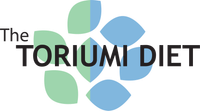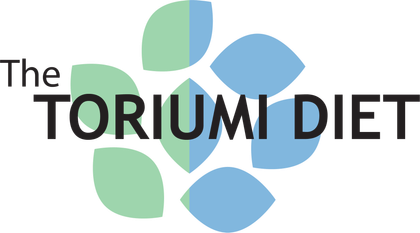The Toriumi Diet Introduction
During the late winter of 2019 and spring of 2020, the entire world’s population began to experience a pandemic of epic proportions. COVID-19 has infected millions of Americans and has displayed a wide range in severity of disease with many people showing no symptoms, yet some demonstrating severe symptoms — even death. Those under 30 years of age tend to have mild to no symptoms and are rarely admitted to the hospital, whereas many over 60 years of age have shown severe symptoms. The presence or absence of comorbidities is one of the key indicators as to what clinical course people have experienced. Comorbidities are other chronic diseases that COVID-19 patients may have had. Some of the most impactful comorbidities affecting COVID-19 outcomes are hypertension, obesity, diabetes, cardiovascular disease, asthma or other lung disorders. (Yang J, Zheng Y, Gou X, Pu K, Chen Z, Guo Q, Ji R, Wang H, Wang Y, Zhou Y. Prevalence of comorbidities and its effects in coronavirus disease 2019 patients: A systematic review and meta-analysis. Int J Infect Dis. 2020 Mar 12;94:91-95.) Additionally, age is a major risk factor given that death rates reach 20% in patients over 80 years of age, with hardly any deaths of those less than 20 years of age.
It is unclear whether the COVID-19 pandemic will reappear in the winter and spring of 2021. Numerous experts are predicting that many people will again become infected with the COVID-19 virus unless an effective vaccine becomes available. No amount of social distancing or mask use will completely protect you from this very contagious virus. And even if a vaccine is developed, many may still become infected due to ineffectiveness of the vaccine or mutational changes in the virus. Considering the threat of the COVID-19 virus, we must think of ways to protect ourselves from suffering a poor outcome if we become infected.
If we look at the factors that influence potentially poor outcomes after contracting COVID-19, we cannot control our age. However, we do have some control over the number of comorbidities that we have. Hypertension, obesity, adult onset diabetes, and asthma are comorbidities that we can control to some extent. Heart disease and chronic lung diseases are less influenced by what we do on a daily basis. If we make significant lifestyle changes and modify our diets we can significantly decrease our blood pressure, lose significant amounts of weight and even control our tendencies toward suffering an asthma attack. It may be time for us to take personal responsibility for our general health and take control over what we eat and drink.
There are many types of diets out there that have different underlying principles. There are plant based diets, the Mediterranean Diet, the Okinawa Diet, the Paleo Diet, low carb diets, intermittent fasting diets, etc. This can be very confusing. My preference is the anti-inflammatory diet for several important reasons.
First of all, it has similar characteristics of several other well studied diets such as the Mediterranean diet, plant based diets and the Okinawa diet. The anti-inflammatory diet is based on eliminating or at least minimizing intake of inflammatory foods and trying to eat and drink either neutral or anti-inflammatory foods. The diet requires a clear understanding of what is inflammatory and what is not, which will be explained in detail in this book. It also involves incorporating anti-inflammatory supplements into your diet. Exercise is an important component to maximize the total body effect, too.
In all, the anti-inflammatory diet is a lifestyle which requires discipline and focus to implement. The only other means of protecting yourself from contracting a bad bout of COVID-19 is to isolate yourself. It has become apparent that is not a great option for an extended period of time as we know this can lead to loneliness, depression, alcohol abuse, drug abuse and even spousal abuse. Other than isolating yourself, washing your hands frequently and wearing a mask, there are not a lot of other protective measures that you can take. However, you can change your lifestyle to protect yourself from a poor COVID-19 outcome should you contract it. You will benefit in many other ways as well. You can experience significant weight loss, improved heart and general health conditions, less joint pain, improved self-esteem, better mood and a potentially longer lifespan. All good quality of life changes in exchange for a definitive lifestyle change.
The nose is the most common pathway for contracting the COVID-19 virus. And as a facial plastic surgeon trained in otolaryngology and (ENT) who specializes in aesthetic and functional nasal surgery, I see the impact of inflammation on my patients’ noses and sinuses. I also notice the impact of inflammation on my patients as they recover from nasal surgery. Many patients suffer from clinical symptoms related to their nasal function that compromise their quality of life. These symptoms could range from a stuffy runny nose to chronic recurrent sinus infections. Many of these patients take a multitude of medications to allay these symptoms. Medical care costs related to nasal and sinus disease are in excess of $3 billion every year. Medications are prescribed and many surgeries are performed to try to alleviate the nasal and sinus symptoms. Unfortunately, these clinical interventions are all used to treat the symptoms and not the underlying cause.
Most things that we eat and drink will affect the inflammation in our bodies. Yes, our bodies can be “inflamed.” What does this mean? Your immune system helps to control how your body responds to allergens and other environmental insults. When you get chilled, you may sneeze. This is more of a vasomotor response that is not related to inflammation. However, if you are allergic and you are exposed to pollen, you may sneeze as well. You may also get very stuffy and have to blow your nose. This response is your body’s immune system reacting to the pollen, and how vigorously you respond to the pollen depends on many factors.
With that said, the degree of inflammation in your body directly influences your degree of response. If you are inflamed, your response may be more pronounced. If your body’s inflammation is lower, your response may be reduced to the point that you don’t notice it. This may explain why you sometimes respond to allergens, but other times don’t.
Inflammation also affects many other bodily functions. Some examples: your joints may be more sore after activities if you are inflamed. Your back may hurt more when you wake up in the morning when you are inflamed. Your skin may look really bad when you are inflamed. Believe it or not your body’s inflammation is linked to heart disease, arthritis, rosacea, and yes, your nose and sinuses. Your body’s inflammation may also affect your vulnerability to contracting COVID-19 and doing poorly with the disease. The theme here? Inflammation is bad for your body and your general wellbeing.
So how do you control your body’s inflammation? You actually have more control than you may think. Most things that you eat or drink will affect your body’s inflammation. Yes, your diet is closely linked to how your body functions and how you feel. Some foods are inflammatory and increase your body’s inflammation. Other foods are anti-inflammatory and decrease your body’s inflammation. Many things are neutral, so they do not affect you either way. So what can you do to decrease your body’s inflammation?
First of all, you need to need to understand how foods influence inflammation. Then you need to find out what foods and drinks are inflammatory or anti-inflammatory. You could even experiment and see what happens if you avoid inflammatory foods. You will likely notice that your joints are less sore, your skin improves and nasal and sinus symptoms are diminished. In fact, you may be able to stop taking some medications that treat the symptoms. You are now preventing the symptoms from occurring because you are dampening your body’s response to the same allergens that have always bothered you. One day you eat a lot of inflammatory foods and you find that your nasal and sinus symptoms are worse. Maybe your back and joints hurt and your skin has blemishes as well. Yes, you are inflamed, and your body is mounting a massive response to the allergens using the fuel you ate to trigger the symptoms.his fuel is the inflammatory foods you ate. When you choose what to eat or drink, you are essentially choosing good fuel or bad fuel. Bad fuel is the inflammatory foods that support your body’s reaction to environmental insults such as those allergens you react to.
In this book I will empower you to make your own educated nutritional decisions. I will give you plenty of background information on how your body responds to food and drinks. I will also teach you how your body’s immune system is influenced by what you eat. We can then go into some detail about what foods are inflammatory and what foods are anti-inflammatory. You will be empowered to help control your body’s overall function and your bottom line quality of life. The overall goal here is to feel better and eliminate some of those comorbidities that can negatively impact your experience with COVID-19 or other future viruses. I will start by explaining how your nose and sinuses work and how they are impacted by inflammation. This is important in many different ways. As previously mentioned, COVID-19 likely enters your body via the nose and if your defenses are strong, perhaps your body can fight off the presence of some of those viral particles.
Approved by Professionals
The anti-inflammatory diet is endorsed by the likes of Andrew Wyle, Nicholas Perricione, and Barry Sears. These men and medical professionals all over the world praise the effects of the anti-inflammatory diet and how it can protect you from disease beginning at the cellular level.
Order NowHow it Works
If we look at the factors that influence potentially poor outcomes after contracting COVID-19, we cannot control our age. However, we do have some control over the number of comorbidities that we have. Hypertension, obesity, adult onset diabetes, and asthma are comorbidities that we can control to some extent. Heart disease and chronic lung diseases are less influenced by what we do on a daily basis. If we make significant lifestyle changes and modify our diets we can significantly decrease our blood pressure, lose significant amounts of weight and even control our tendencies toward suffering an asthma attack.
Multiple Benefits
Be Healthier
Improve and protect your health by learning what foods are inflammatory and anti-inflammatory.
Protect Yourself
When it comes to COVID-19, this diet prevents co-morbidities and increase your chances of disease prevention exponentially.
Feel Better
Feel better in all aspects by following this new anti-inflammatory diet that prevents illness and improves your overall lifestyle.



